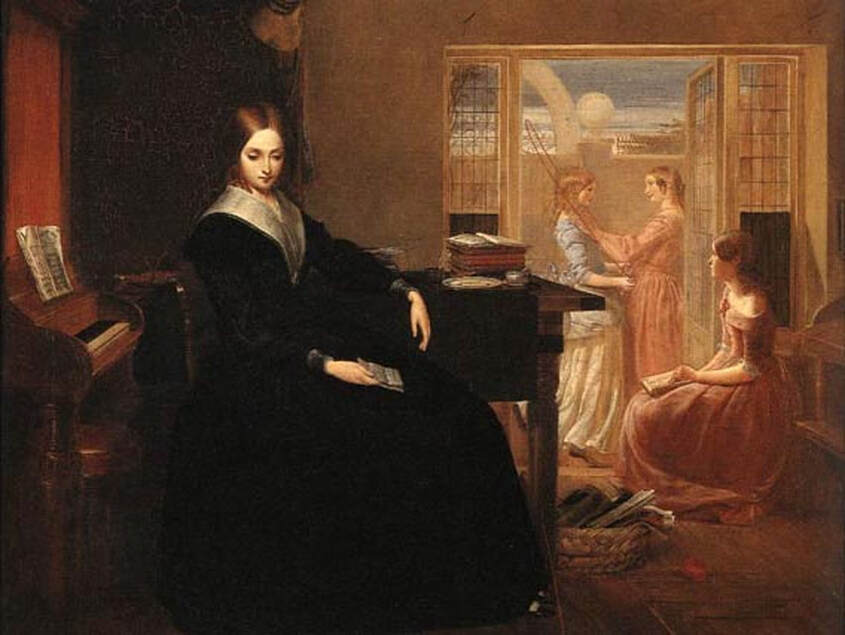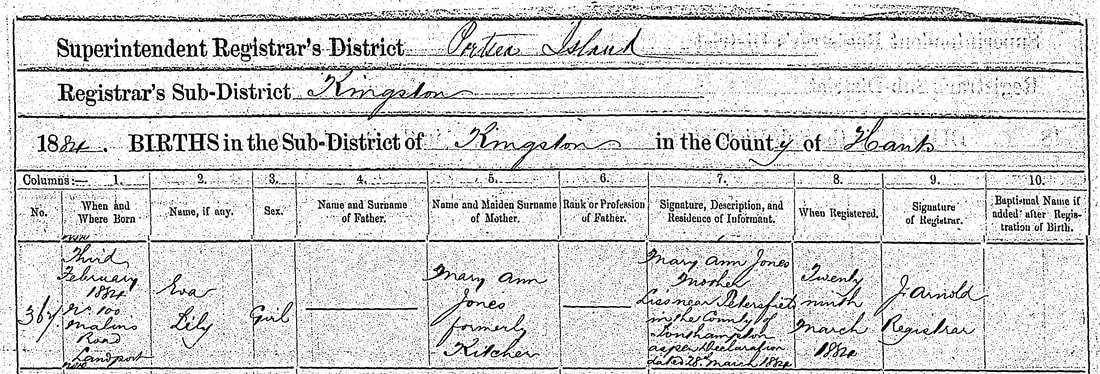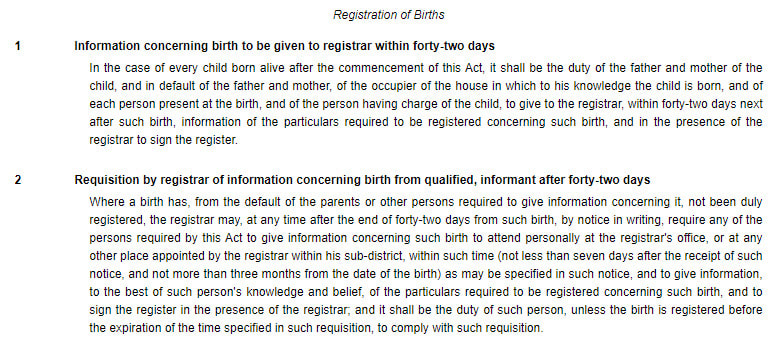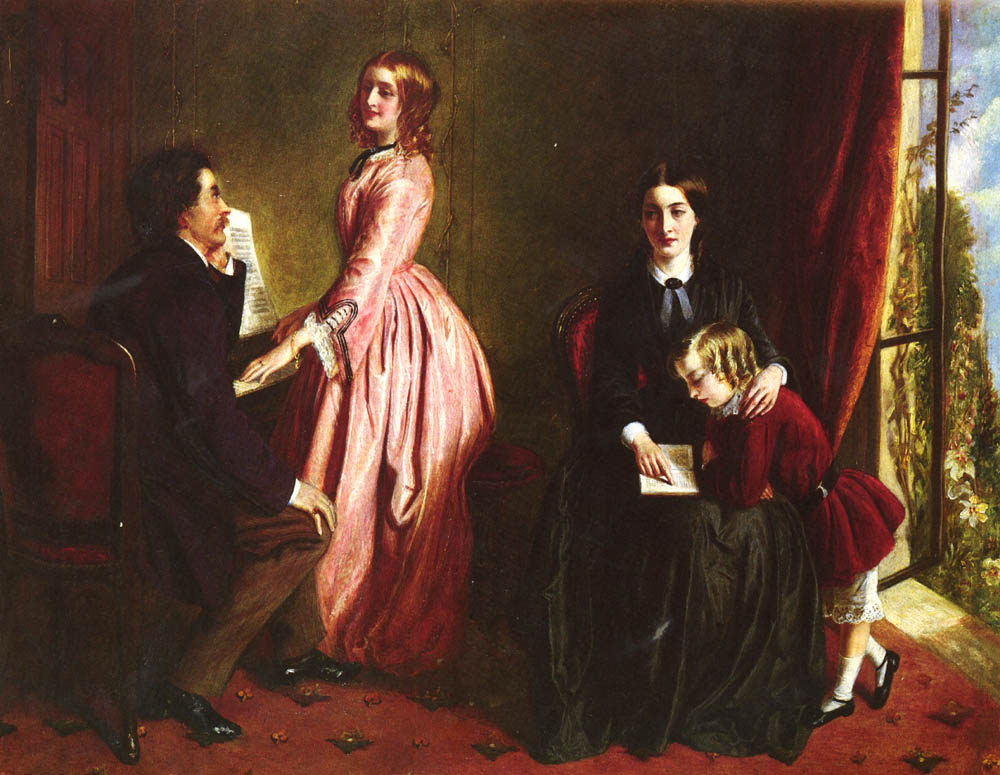Background It was the single boot that did it. Such was the urgency, confusion and apparent desperation to end her life that young governess Eva Jones only removed the one. Her tragic and premature death in 1910 aged just 27 years old incites a multitude of questions not least the inevitable, overwhelming and persistent why? Our ancestors can amuse or bemuse, astound and confound – but is the evidence sometimes misleading? Is it painting an inaccurate profile picture of their character and presenting a one-sided view of events? The tragic tale of Eva’s death, which I stumbled upon almost by accident back in 2014, incited a compulsion to know more about her life. However, the lack of substance from which to build a profile has left a void of puzzlement and confusion. It also provokes sadness at how readily this young woman appears to have been discarded and forgotten. As fragments of information appear and some gaps widen the more determination grows to uncover the full extent of her story. But research to date has also created self-doubt – with so little evidence to unite the pieces of the puzzle am I even researching the correct person? At the time of her death, Eva was noted as the adopted daughter of the Reverend Arthur Cooper Marsdin, only 16 years her senior. Although this seems slightly strange, the story of Eva's birth family and background seems so far removed from the profile of a young woman who could become a temporary governess to Hon. Henrietta Franklin CBE., in the summer of 1910 to be credible.[1] I intended to share aspects of Eva's story as part of the weeklong #ReclaimJane workshops hosted by genealogist Natalie Pithers, but time was not on my side. I did, however, manage sneaky peeks at some of the fascinating and moving stories that ensued. A common theme was hardship, suffering or forbearance due to the unfair and often harsh attitudes towards women in years gone by. Women portrayed as victims of the piece and the times in which they lived. In contrast, I thought I would share an aspect of research into Eva's background that may suggest an alternative view. The process of pinning down a birth and thus establishing parentage for Eva was protracted and frustrating at times. It wasn't until the middle name 'Lily' came to light that any real progress was made at all. A census sighting in 1891, as the 'adopted niece' of Hannah Etty Smith, a vicar's daughter and teacher in London pointed towards a birthplace of Hampshire. In 1901 the record for a governess to John Bicknell, a Bank Manager and his family in Axbridge, Somerset, narrowed the search to the area around Southampton. Although there were numerous births for Eva, Eva Lilian Jones and other permutations of the name registered nationwide in the period 1880 - 1885, there was only one birth registered for an Eva Lily Jones. It was in Landport, Hampshire – so not Southampton, but in the right County and not too far away. Eva's mother, Mary Ann Jones, nee Kitcher appears married, yet no details of her father are recorded against the birth. She was born on 3rd February 1884 at 100, Malins Road, Landport (Portsmouth) around 30 miles from her mother's usual place of residence at Liss near Petersfield. Eva's birth was registered almost two months later on 29th March. It was late – her mother had overrun the statutory 42 days allowed following birth to register a child. This information was 'as per a declaration given the 28th March'. A 'declaration' (long gone) that may have held further clues as to why the registration had overrun and possible clues as to her father and circumstances of her birth. Births and Deaths Registration Act 1874Mary Anne Kitcher Digging into Eva's mother's past potentially raised questions as to her character and motivations. But is the evidence swayed to a male perspective? Mary Ann Kitcher was born into a large family at Fawley in the New Forest, around seven miles from Southampton in the Spring of 1852. Her parents, Charles Kitcher, a Carter, and mother Esther Orman were natives of the Village. By summer 1868 the sixteen-year-old Mary was in the family way and a daughter, Mary Jane, was born in November. She named the putative father as a Master Mariner called Thomas Rowe and pursued him for maintenance. But Thomas fought back. The following is a transcription from the 'Hampshire Independent' dated Wednesday 7th April 1869 of the appeal against the Court's ruling against him. Kitcher was a servant at Stone Farm, Exbury and on the 27th December, in 1867, met Rowe, a Master Mariner, at his father's house at Lepe, and he accompanied her and her brother part of the way home. She saw him again in February and on the third time of their walking together, Sunday, the 1st of March, they had intercourse during the afternoon, resulting in November in the birth of a child, to maintain which she summoned Rowe before the magistrates, but they dismissed the complaint. Although Eva's mother could write, the above is hardly the level of literacy required of a governess, let alone the governess to an acknowledged educationalist. She was cross-examined at some length as to her acquaintance and connection with others, the latter of which she positively denied… The court did not wait to hear a reply from Mary's representation but confirmed their order plus costs again Thomas Rowe. This decisive action suggests they were having none of Thomas' attempts at discrediting Mary's moral character. But in light of what is known about the birth of Eva in later years, could there be an element of truth in his accusations? Postscript The Governess often came from 'well to do' middle class households who, for a multitude of reasons had fallen on tough times. Furthermore, ‘The governess was expected to look after her pupils’ moral education too. As well as reading the Bible and saying prayers with them, she was to set a good example of modest, moral behaviour.’[2] Being illegitimate and from a working-class background would almost certainly have precluded Eva from the position of Governess. Nor would it have provided her with the requisite level of education and ladylike 'refinements'. Why then was Eva singled out and apparently 'groomed' for employment befitting a young 'lady'? As well as the illegitimate half-sister born in 1868, Eva also had a half-brother Hubert Henry born to Mary Anne Kitcher and husband Anthony Jones in 1880. The couple married in the September quarter of 1878, but Anthony was already absent by the time of the 1881 census. Siblings Hubert Henry and Mary Jane remained with, or near to their mother and the Kitcher family. But Eva did not, her life was vastly different. Neither Eva nor her mother fit the profile expected at the outset of research which serves to make it even more compelling. Was Mary Kitcher a 'schemer' and the Vixen portrayed or was she, like her daughter a victim of circumstance? With Eva apparently separated from her mother at an early age suggesting third party intervention other than the 'state', the question is by whom and why? Their story continues to evolve … [1] 'A leading advocate for the causes of education, women's rights, and Liberal Judaism, Henrietta Franklin dedicated her life to numerous progressive causes.' In the summer of 1910, the Franklins rented Howick Hall during the absence abroad of the Earl and Countess Grey. Newspaper evidence suggests that Eva had entered the Franklin's employ on the 8th July, 6 weeks to before her apparent suicide. [2] British Library, Kathryn Hughes, ‘The Figure of the Governess’, https://www.bl.uk/romantics-and-victorians/articles/the-figure-of-the-governess Further ReadingFor those with an interest in the life of a Governess:
Kathryn Hughes, 'The Victorian Governess' London, 1993. (There is 30% saving to be had buying direct through publishers Bloomsbury https://www.bloomsbury.com/uk/victorian-governess-9781852853259/) More information on The Hon. Henrietta Franklin C.B.E. Snippets of information can readily be found online, including the website 'The Dinner Puzzle'. The site is based around the ‘guest list for a dinner held on 23rd March 1933 at which friends and colleagues assembled to present a portrait by artist Alice Mary Burton to Lady Rhondda – suffragette, businesswoman and publisher.’ A fascinating and different take on prominent women of the day. https://thedinnerpuzzle.com/portfolio/the-hon-mrs-franklin/ Monk Gibbon, 'Netta', London 1960. A biography of Henrietta Franklin C.B.E.
0 Comments
Leave a Reply. |
AuthorSusie Douglas Archives
August 2022
Categories |
Copyright © 2013 Borders Ancestry
Borders Ancestry is registered with the Information Commissioner's Office No ZA226102 https://ico.org.uk. Read our Privacy Policy





